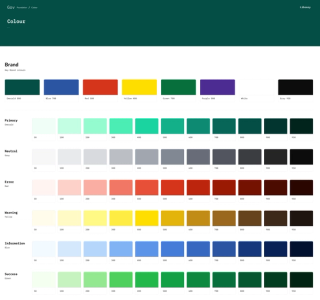Two principles run through all good web design: A microscopic focus on the unique and specific requirements of a project, and a commitment to building an experience that is universally accessible to every user. At Kooba, we have become experts at both, with the result being powerful and accessible websites, completely geared towards delivering the metrics that matter most to our clients.
Defining Your Success
The first question we ask any client is always the same: “What does success look like for you?”. It’s not rhetorical. Each organisation's definition of success is completely unique, and a design that does not account for these specific goals will prove wasteful and useless. The simple fact is, there is no magical one-size-fits-all website solution that can solve every problem a client may have. Agencies cannot (or at least should not) copy & paste entire designs across different projects, for the simple reason that each website needs to be built with unique challenges and objectives in mind.
Listening to the Experts
Just as every project we undertake presents unique challenges, every client we meet can offer unique insights into how to tackle these. When we describe ourselves as partners, we mean it. Listening and collaborating are central to our design process, and for good reason. No agency in the world understands your product, customer base and values better than you, and we pride ourselves on working with your knowledge rather than against it. The result is a truly unique and customised design, informed at every stage by insights and advice from our partners.
Small Details, Big Picture
A design that is laser-focused on the needs of a client is one pillar of good design, but so is an ability to deliver that design to as broad an audience as possible. This is a complicated task, but one which Kooba prizes itself on. Universal design entails a whole range of considerations, ranging from branding and aesthetics (see Duncan, our Lead UI Designer’s blog here) to customer behaviour types (read Elena, our Design Director’s thoughts here). Of course, every user is truly different, but some general features of web design can help accomplish success across the boards. By striving for deep empathy with our end user and focusing on the principles of good UX design thinking, we can consistently provide a positive and efficient experience for every consumer. A good digital experience will be used by a lot of different people, so its design must predict and accommodate that diversity of experiences.
Accessibility First
Central to such a universal design is the issue of accessibility. Accessible design incorporates features which increase usability for disabled and situationally disabled users. This makes a digital experience available to a far larger audience, and provides an improved experience for every user (see what Brendan, our Head of Front End Development has to say). By building accessible sites, Kooba leaves no customer behind, ensuring that our digital experience is enjoyed by as many visitors as possible.
Doing it Right
The basics of good design (and good development) are universal, but design does not exist in a vacuum. We design things for a reason, and strive to accomplish some goal in the process. Thus even if our outlook and methods are universal, the challenges we apply them to are always new and unique. At Kooba, we’ve learnt to see the challenge, and even the fun, in this strange contradiction.








